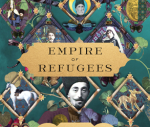You are here
Calling a spade a spade
Jul 13,2015 - Last updated at Jul 13,2015
As was expected, Russia last week vetoed a UN Security Council resolution condemning the 1995 Srebrenica massacre and describing it as a “genocide”.
The resolution marked the 20th anniversary of the murder of some 8,000 Muslim men and boys in Srebrenica by Bosnian Serb forces.
The Russian UN ambassador had urged the council not to vote on the resolution, which he described as “not constructive, confrontational and politically motivated”.
The Russian envoy went on to say that “our vote against will not however mean we are deaf to the suffering of the victims of Srebrenica and other area of Bosnia and Herzegovina”.
Not so, said the US ambassador to the UN.
“Russia’s veto is heartbreaking for those families and it is a further stain on this council’s record.”
Ten other nations voted for the resolution, with four members — including China — abstaining.
To put things in proper perspective, the UN Tribunal for the former Yugoslavia has already ruled that the massacre that occurred in Srebrenica is the worst mass killing on European soil since World War ll.
Serbia itself acknowledged that a grave crime was committed but stopped short of calling it genocide.
Whether the massacre in cold blood of thousands of people over a span of time of three days commencing on July 11 is genocide or not in the eyes of Moscow and other likeminded capitals is immaterial.
The fact remains that some 8,000 Muslim boys and men were assembled and systematically murdered by Serbian forces and that deserves recognition and commemoration.
That is what the Security Council wanted to do, even though there are some countries that refuse to call a spade a spade for no other reason than politics.














